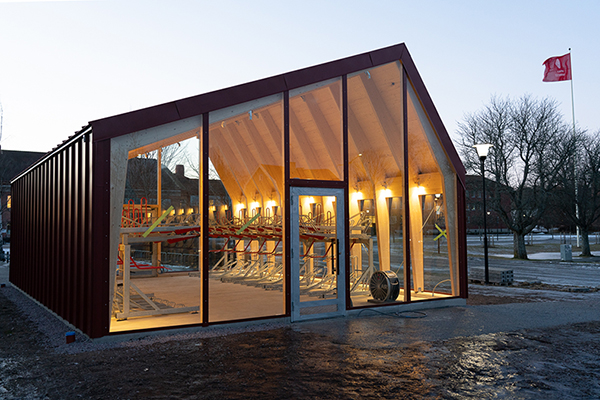The Uppsala Climate Protocol is a local climate agreement and network of companies, public sector activities, universities and associations across all sectors working together and inspiring each other and others to increase the pace of climate transition.
Uppsala University has been part of the Climate Protocol since 2011 along with some 40 other organisations and businesses. In autumn 2021, its members signed up for a fifth period of the Climate Protocol – 2021–2024.
Other members of the Uppsala Climate Protocol include the Swedish University of Agricultural Sciences (SLU), the Municipality of Uppsala, Region Uppsala, Akademiska Hus, Vattenfall (an energy company) and many companies from the construction and life science industries.
Cooperation is needed to achieve climate targets
Tora Holmberg, Vice-rector for the Disciplinary Domain of Humanities and Social Sciences, is the University’s representative on the Uppsala Climate Protocol and she explains why the University is involved in this initiative:
“The climate issue is complex and the challenges are great,” says Tora Holmberg. “For Uppsala University, education and research are of course our most important contribution to sustainable development and climate transition efforts, but we are also working to reduce our own carbon footprint. In order to achieve the climate targets we have set and to help accelerate climate transition, we need to work together across organisational and industry boundaries. That’s why the University is a member of the Uppsala Climate Protocol.”
Choosing climate challenges
Being part of the Uppsala Climate Protocol requires that the members take on climate challenges that apply up until 2030. Climate challenges exist in a range of areas and the ones to address should be those most relevant in reducing the climate impact of the member’s own organisation. Uppsala University has chosen five:
- Travel: Fossil-free and renewable domestic business travel
- Travel: Reduced climate impact from international business travel
- Travel: Fossil-free and renewable commuting to and from work
- Procurement and recycling: Fossil-free and renewable transport when procuring products and services
- Procurement and recycling: 100 per cent recovery of IT products.
Better dialogue with suppliers
The goal of not increasing the global temperature by more than 1.5 degrees in practice means that the members of the Climate Protocol need to work towards a 14 per cent reduction in greenhouse gas emissions per year.
“Working together also increases our opportunities of moving forward faster with this work, and both public and private actors in the Uppsala region are being very proactive. A concrete example at the moment is the problem of fossil-based plastics that go to waste incineration and thus cause emissions that contribute to climate change. The University uses fossil plastics in its laboratory activities for example, with hazardous waste containers filled with waste from the lab then going directly to incineration. Within the framework of the Climate Protocol, we have initiated cooperation to find alternatives to these hazardous waste containers. The University is working with SLU, Uppsala Region and companies in the life science industry, for example, to provide better opportunities for dialogue so that suppliers develop waste containers made of fossil-free material,” says Tora Holmberg.
